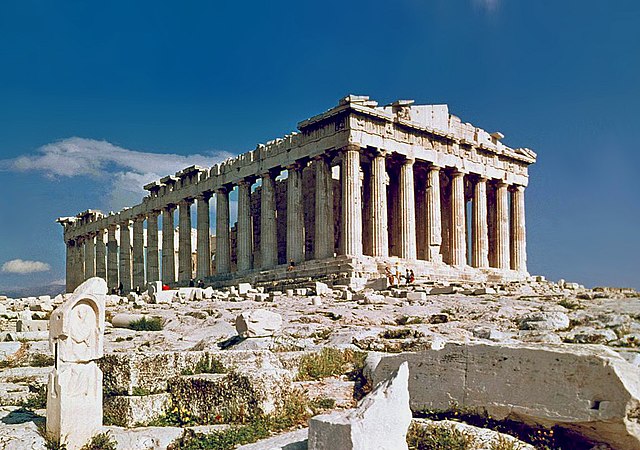“Inspired by historical events and characters, this work of fiction was designed, developed, and produced by a multicultural team of various beliefs, sexual orientations and gender identities.”
So opens the initial loading screen of every Assassin’s Creed game since their beginning in 2007 (sexual orientations and gender identities were added with the franchise’s tenth installment, Syndicate, in 2015). From the first time my brother and I launched that original game, I lauded this layered statement of intent; a 2007 game set in the Levant during the Third Crusade could have easily resulted in odious stereotypes, veiled or otherwise, of the Muslim world, yet with this message the developers at Ubisoft assured their audience that not only had they sought input from a wide variety of viewpoints, but by extension the resulting experience would present the period in a way more in line with our own secular, multicultural society than how its actual historical actors likely perceived their own actions. This theme has remained admirably constant throughout the series: the protagonist Assassins and antagonist Templars stand in for good and evil, and while they often weave in and out of historical powers, those powers are more often than not portrayed as never wholly “good” or “bad,” supporting and opposing player characters’ by turns as their agendas dictate.
As I began the Classical Greece-set Odyssey, then, I was sure this ambiguous approach would lend itself perfectly to the morally messy Peloponnesian War. In the aftermath of the successfully-repulsed Persian invasion of 480-79 BC, the Greek city-states founded the Delian League for mutual defense and taking the fight to their common Persian enemy. Athens soon took the lead in this military alliance, and while initially all members contributed ships and soldiers according to their ability, Athens eventually converted all contributions into cash payments, transferred the League treasury from the islam of Delos to Athens herself, made resignation from the League impossible, and used its newly established extractive revenues to build the glorious Parthenon. Suspicious of Athens from the start, Sparta gathered its own military alliance, the Peloponnesian League, and staunchly opposed this grave threat to Greek autonomoi. Yet Sparta itself was not without sin: the ability of its citizens to be exclusively professional soldiers rested on the mass enslavement of the Messenian helots in a society highly reminiscent of later American chattel slavery. The champions of Greek liberty, therefore, were simultaneously one of the harshest slave societies of the ancient world, while the brutal imperialists were also the peak of cultural achievement–and the inventors of democracy. What better setting could there be for a game in which your protagonist fights all sides as they pursue their own moral journey, fighting for the franchise’s overarching theme that free will, with all its risks, is preferable to stultifying, tyrannical order?
Yet as the credits rolled on Odyssey’s core game, I couldn’t believe my eyes. While the Delian League and the helots had both been mentioned throughout the course of the game, neither had been fully explored, let alone explicitly called out for their moral contradictions. Instead, rather than both sides of the Peloponnesian War coming off as self-serving, Odyssey had tried to have its cake and eat it too, lionizing Sparta AND Athens as each admirable in their own way, manipulated into fighting each other by a cartoonishly-evil cabal. Indeed, the elision of the helots is particularly damning, as the player character’s own mother peddles a happy slave narrative straight out of the 1850s (with no accompanying rebuttal). As many modern fascist movements lionize Sparta for its “glorious” militarism, any such papering-over of that city-state’s brutality is doubly irresponsible.
As I reflected on my years playing the Assassin’s Creed games, I realized this was not the first time fundamental elements of history had been elided in favor of making settings more palatable for modern audiences. While the franchise’s conceit of super-advanced forerunner technology influencing human history not only implies the origins of world religions but specifically references Judaeo-Christian scripture (a human man and woman, rebels against their Isu overlords, escape from a technological utopia after stealing an apple-shaped device that is known in-universe as a “piece of Eden”), actual human faith is glaringly absent from its protagonists’ lives. Players can clamber over all kinds of religious architecture, of course, from the Notre Dame to Hagia Sophia to the Dome of the Rock, but in a series set predominantly before 1800 (not including modern framing, only 1 has occurred later, set in 1870s London) characters almost never pray, attend services, or reference the divine in everyday life–if they’re part of a modern monotheism, at least. While this may make sense from the standpoint of getting modern, more secular audiences invested in their main characters, it is horribly ahistorical–there really is no world where medieval Shi’a Hashasheen or Renaissance Catholic Florentine noblemen are not living their faiths in organized, explicit fashion.
Now, as I log in to Odyssey in the process of finishing its further DLC stories, I see that usual multicultural message rather differently. Rather than a positive statement for avoiding reading our own prejudices onto historical actors, I see it as a neutral disclaimer that they have avoided as much controversy as possible when portraying their chosen material–historically accurate or otherwise. I certainly cannot fault Ubisoft for this; they are a business, after all, and controversial media does not generally sell very well on a global scale. But in a world where an increasing proportion of people admit that they learn their history from video games, it is well worth remembering that for all their verisimilitude and immersion, these games are very far from teaching accurate history.
